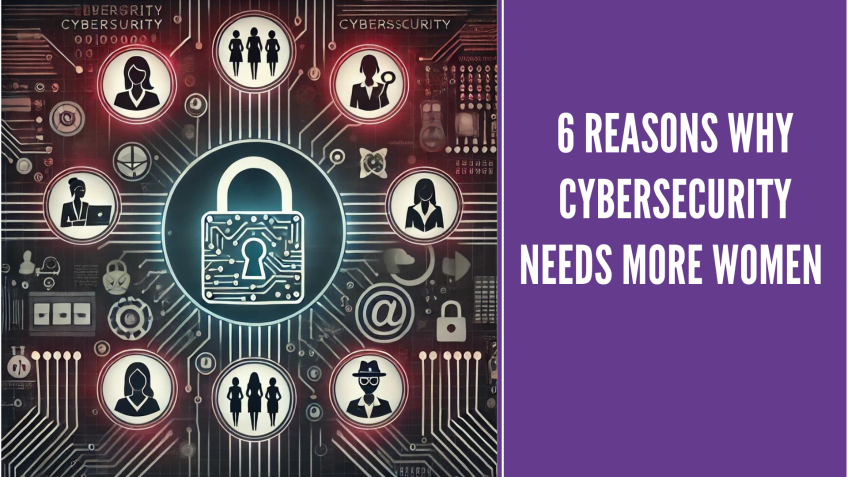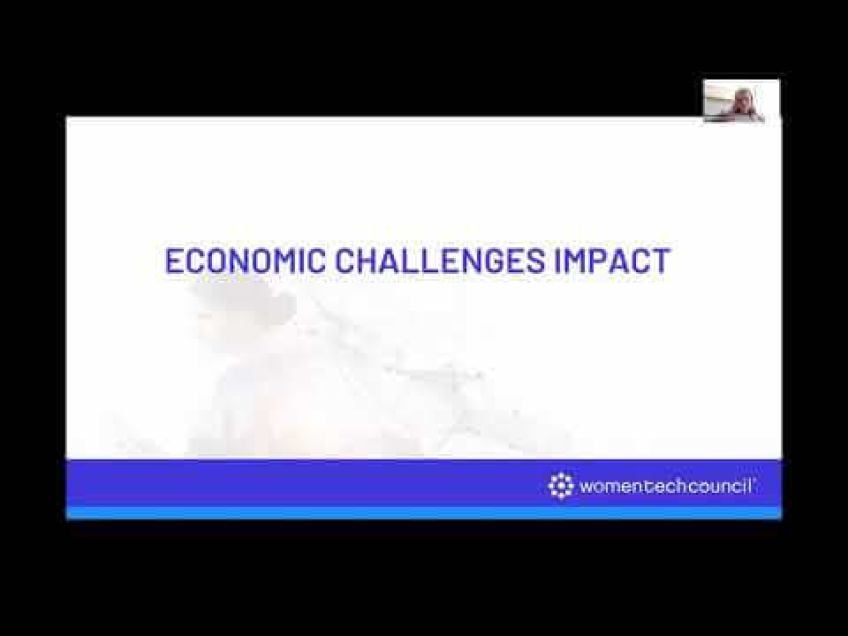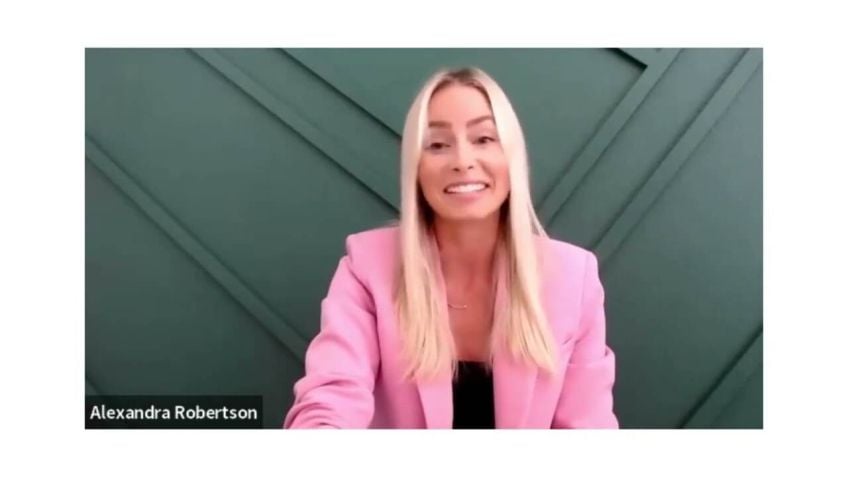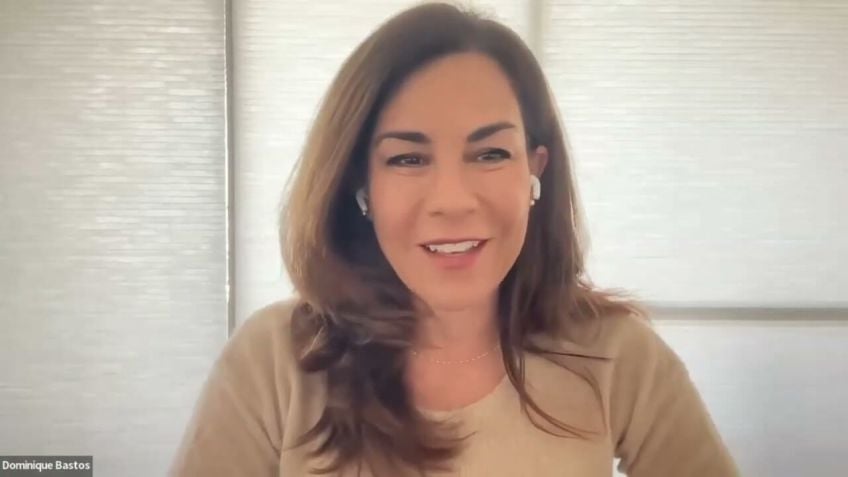Creating a culture of connectivity, support, and success in a remote work environment by Michelle Labbe
Creating a Remote Work Culture: Insights from Topel's Chief People Officer
In the evolving world of remote work, cultivating a successful and supportive culture can be a challenging task. Here to share her experience and wisdom on the topic is Michelle Lady, the Chief People Officer at Topel—a global remote company offering a freelancing platform for businesses to connect with top talent.
About Topel and Their Remote Work Culture
Topel, an acronym for top talent, provides a platform to connect businesses with global talent in diverse fields—from software engineering to design to product management and more. As a fully remote organization with employees across the globe, creating a robust and efficient remote work culture is top priority for the company.
One of the common questions that Michelle receives is about the company's headquarters. True to the spirit of remote work, Topel began and operates remotely, with its executives scattered across the globe. From having less than 400 employees to over 1400 today, the company's focus has always been on maintaining connectivity and a supportive culture in the virtual workspace.
Benefits of Remote Work
- For the company: Eliminating office leases, unrestricted hiring options, reducing office equipment leases, and ensuring a germ-free environment, particularly in the current COVID-19 context.
- For employees: No commuting, reducing clothing costs, freedom to work from any location, and flexibility in working hours.
According to Michelle, this work model has increased productivity and promoted a healthier lifestyle among employees.
Keys to Operating Successfully in a Remote Work Environment
Michelle outlines three essential components for a thriving remote work environment:
- Hiring the right people: Since Topel's jobs are fully remote, it enables the company to hire the best talent, irrespective of their geographical location.
- Use of the right tools, technologies, and processes: To support the remote lifestyle, it's crucial to have the right tools in place. Topel leverages Slack, Zoom, and similar technologies to aid effective collaboration.
- Keeping team members engaged and connected: The final component of the remote work puzzle is ensuring engagement and connectivity among team members.
Hiring the Right People
Topel values diversity and envisions its remote work model actively fostering a culturally diverse work environment. But it also encourages candidates to have a strong local network for their wellbeing since remote work can sometimes be isolating.
Tools and Technologies Used by Topel
To enable seamless collaboration, Topel utilizes various tools and technologies. Slack and Zoom are extensively used, with email being less frequent. Additionally, they also use UKG for HR, Lever for recruitment, Lessonly as a training platform, and more for various operational purposes.
Keeping Team Members Engaged and Connected
To maintain engagement and connectivity among team members, Topel employs several strategies, including monthly all-hands calls, transparent sharing of company finances, client wins, inspiring stories, and even anniversary shout-outs.
Topel also offers internal mobility, encouraging employees to progress in their chosen career paths. The company provides a clear set of career maps detailing what it takes for an individual to reach the next level.
Key Takeaways
Creating a robust remote work culture requires a thoughtful strategy and the willingness to adapt. Trust, clear communication, well-defined roles, and transparency are vital. But with the right approach, companies can cultivate a supportive and productive remote work culture—like Topel has.
Whether you're a company looking to improve your remote work culture or considering a career with Topel, Michelle is eager to help. Reach out to her at [email protected] with your questions.
Video Transcription
Um My name is Michelle Lady and I am the Chief People Officer of Topel. Many of you might not have heard of Topel. Topel stands for top talent.And we are a global remote company that provides a freelancing platform, connecting businesses with talent from software engineers to designers, to product managers, to project managers and more. And today I'm gonna talk about creating a culture and a fully remote work environment.
So um a little bit about me is I've been at top t for going on four years now and came from a background in a variety of different industries. I think being an hr person is helpful that you can hr translates everywhere. So I've been in fashion, I've been in advertising, I've been in journalism. Um I started my career at accenture in Deloitte. So uh soup to nuts. I've done everything from big company to small company. Um And um this is what I'm gonna talk about. So we'll talk about creating a culture of connectivity, support and success in a remote work environment. So, one of the things that I got most when I started at Topel um was questions around and I am having a hard time doing my slides. So let me, here we go. Um, where are your headquarters? Everybody wants to know where our headquarters are. Um And my response was there isn't one? Well, where did the company start? It started remotely? Uh And then my next question I usually get is, well, where are your executives located? And I, they're across the globe. Um, and a lot of people have a hard time grasping that I certainly did when the recruiter called me and said, this is a fully remote company. And I said, what do you mean it's fully remote? Hr people are always in an office and no fully remote started 12 years ago with uh you know, folks from all over the world. Again today, we're in over 100 countries.
And so this is kind of the culture that we've maintained and that's a lot of questions that then leads to, well, how does that work? How do you know your people are really working? How do you keep track of everything? How do you maintain a culture? Um I started at the company and there was under 400 people. Now we're hitting over 1400. And so it's really about how do we keep everybody connected um in all the different time zones all over the world and working. And so let me talk a little bit about the benefits to the company with remote work. So, um a lot of of, you know, this as we're going back to these hybrid worlds right now that we're in. But you know, the benefits, there's no office leases. Um There's no space capacity issues. Hiring is not constrained to one particular location or multiple locations. We don't have to uh lease office equipment and especially in this COVID world, there's no passing germs in an office. I would also say for me as someone who also has to manage facilities, there's no bathroom issues and no uh people coming late to work because there's a snowstorm. It takes everything out of it and then what are the benefits to our employees? There's no commuting. Um There's no clothing allowance costs. Uh No, especially with the gas, the skyrocketing gas prices, you can work from anywhere in the world. You can move anywhere in the world. You don't have to stay in one location. You finish your work really on your own time.
Um You know, you aren't distracted by people dropping into your office or your cube or, or stopping you in the hallway when you're going to get a cup of coffee, you take breaks when you need to and it really allows for a flexible schedule. So if you need to run to the dentist in the middle of the day, if you need to take your dog out, if you need to pick your kids up from the bus, whatever it is, um We've really found that this leads to a much higher productivity and a healthier lifestyle all around. So the three keys to that, that I talked about when successfully operating in a com completely remote work environment is making sure number one that you hire the right people, number two is really making sure you have the right tools, technologies and processes in place to support the remote lifestyle.
And then key to all that is really keeping team members engaged and connected. You're gonna hear me say a lot about connectivity in this because really it's, it's, you know, in this job market where it's so hard to find folks, they really want to work for a company where they like their culture. So first is hiring the right people. So we hire people. I think the beauty of what we do at topt tell is you can hire the right people from anywhere. So when I post a job for a product manager or a sales rep or um anything, uh an engineer, I want the best person, it doesn't matter where they live what time zone they're in. Um Although I'll talk about that in a second, but really where they are can be anywhere and that's how we post our jobs fully remote. And um that's why we get the most diverse and, and it really leads to a culturally diverse climate, really smart people that you never would really work to work with if you didn't have this type of environment So the two things that we also though I will talk about is you have to be able to because we're a us based company.
Um even though we have no headquarters, everybody has to speak right and communicate well in English. Um we have people that come and interview and their English skills are not up to par necessarily. And we ask them to reapply later and they go work and they come back and perfect. Uh Again, it doesn't have to be perfect English, but we do speak in English, write in English and everything has to come across as professional. We also because we're global have a slight us time zone overlap during your day. So we have regular all hands meetings, department meetings that everyone's invited to different type of fun things. Those are usually happen on the East coast time zone, anywhere from 10 to 2 p.m.
I would say so that people who even are in a different place, different location farther away. Some folks have to work late sometimes and some folks might, folks have, might have to work early sometimes has not been a big deal. It seems to have worked well for us. We also really need to ensure that our cultural attributes are shown in the people that we hire. And these are what guide our success at Topel. So these are the ones that we um show. They're on our, our culture page on topel.com. They're shared with every candidate that's coming in the door. Uh Everybody has a culture interview. We use performance reviews regularly. We do two times a year right now. We're actually probably gonna move to more uh more informal ones and we measure folks on these because really this is what, how we guide ourselves. I would also say there's a couple that I say are missing here, but collaboration is key. I think that that's a big thing and probably transparency. So a bunch of different ways that we actually show who we are. We want people that are driven, we want people that can work remotely by themselves. They're ambitious, they're career minded, they're willing to help folks and work with others and hold hands if somebody is a new hire and needs help. So these are what we look for our cultural attributes also, we wanna make sure because we're all in the same place.
We are not a company that is hierarchical or political. Uh We don't really care about titles the way we see it is we are all boxes on a screen, we're all uh we use zoom, we are all just zoom boxes on camera. So we look for clear communication and collaboration. Um You actually, you need to be self motivated, open to give and receive direct feedback. Um Strong local network, which I'll talk about in a second and really understand that remote people often work harder and longer if I get on a call and I'm interviewing somebody and they're asking about hours or talking about um thinking that they cannot have childcare in their home.
You know, a remote job. Often as most folks know, you work just as hard, if not harder because you're working a little bit longer. Not that we're making folks do that because we want flexibility throughout the day. But it actually, you know, causes you to actually work on your own hours. I say strong local network because one of the pitfalls that I would say that we have found here is that sometimes people um will take this opportunity to try to move places or definitely um take, you know, oh, I'm gonna go to a new city and I don't know anybody in that city.
And so once you get to that city, if you don't know anybody, you kind of are lonely. And so your whole world becomes your job. And I've had folks even on my team that have moved and thought that this was gonna be a great thing for them and then realize they're sitting in their apartment or their home all day long talking to folks on Zoom. But when their day ends, they don't have anybody outside to go with. So it, it can be a little isolating when you work remotely. And so it's very important to have that network around you. The way we have our recruiting, the way our team works is that we write very detailed job descriptions that are mostly posted on linkedin. Uh We also get, often get a lot of kudos for the job descriptions that we post about really having um what it looks like to uh work, what's 30 days, 60 days, six months who you're gonna be working with. So we do a lot of that stuff on our careers page.
We also have a very purposeful defined interview path so that the interviewers are trained that they're not just um sitting there asking the same questions of the same candidates, you know, when the candidates, like, I, I already went over this with the last person. We record all of our interviews so that the folks can look at the we and we had resistance at this first. But actually, it's been very, very helpful, especially today in this climate where candidates are, you know, are, are have a pick of who they want to go work for and we have to move people swiftly through the process. Um If not everybody gets to interview and folks are on vacation, they can watch the recorded interviews and decide if the person is the right fit. So it helps us move people more quickly through the process and the candidates have not, I, I don't, I can't think of one candidate that has declined to be on camera. We ask if they're ok with it, it gets recorded. We do assessments for every role. So we really want to see how somebody would take an assessment once they were in the job, a skill. So this is more of a skill interview just to find out how they would approach a problem. There's not necessarily a right or wrong answer.
It's more how they would, are they thoughtful? Did they capture all the big points? Um And if they pass the assessment, they continue in the interview process. If they don't, we actually give them very direct feedback about why they didn't pass. And the last interview is a culture interview, which I talked about our culture being important. So the culture interview is more showing our, it's somebody that's not in the career uh in the interview path, somebody that they would not be working with daily, but more of our cultural ambassadors having a frank discussion with them about what it's like to work and it's a safe place for those candidates to ask the questions.
So tools and technologies for us, we use Slack and Zoom constantly. Um and very little email. If we are, if you're a recruiter or you're on the sales team or our legal team, yes, you are using email. But there are oftentimes when I launch something and I have to put in Slack to check your email. Uh We are also almost always on camera. If it's a small meeting like this, everybody is on camera. If it's a large meeting, it's different. But um we wanna cultivate that engagement that like I'm working, you can see the weather behind you or whatever it is. Um tools and technologies that we have. We have a homegrown internet that has org charts and job descriptions and career maps and uh geographical locations and all of that stuff to help everybody engage. We have lesson Lee is our training platform. We do a lot of training here. Uh homegrown UK G for our hr is imperial, which I would say and lever for recruiting. So for the, the lesson UK G and lever, I think almost every hr person really knows there's no great system out there. Um But these are what we use and they're fine, they're B players um confluence where we have documentation again, this helps in our remote lifestyle to have everybody know where everything is contacts, processes. Um Just basic, how do we do things?
We do culture amp we use for surveys. So our departments do surveys all the time um that are anonymous just to do a deeper dive. And then in Slack, we use donut for on boarding roots for employer referrals and our PTO tracking. We do a bi monthly poll survey showing our enps and a happiness score and we use something called karma as an instant recognition bot. Um Last is how we keep team members engaged. So we have monthly all hands calls that are very transparent. There's Q and A, we share our financials, we have share products, we share client wins. We share inspiring stories from our talents. We share our survey results really. So if we, if we give a survey and we ask for feedback and results, we share what those results are good and bad. We do recognition, we do anniversary shout outs. So we really talk about a lot of stuff on our monthly all hands. Um We on our internet, we have OKRS. So objectives and key results that everybody can see. So again, very transparent, everybody can see everything on what teams are working on what their quarterly goals are, who's responsible, who's accountable, um Very much all documented.
So somebody can find anything that they want to find. Also, we have functional and department meetings that are open um to anybody. If you're in marketing and you wanna know what's going on in engineering, you can go to their department meeting, they are recorded, they're posted in slack.
So you can see everything. We have new hire, new letter newsletters that announce all of our new hires that are coming. We do regular touch points. So the people team, my team does 30 day check ins and 100 day check ins and we do stay interviews. So we really just wanna make sure that, you know, you have this partnership to say, how's it going? You have an out you have if you're concerned about something. Yeah. And, and actually it's more confidential from an hr perspective, someone's not coming to your office and shutting a door or getting it and saying, oh my God, who's in Michelle's office? Nobody cares because nobody knows. So it's much more comfortable. We also do annual off sites and local meetups. So even though we are fully remote, I um, I, in South Florida I have about five or six people that live within 20 minutes of me. We get together. If I travel, even on vacation, I look up who's around people get together and then we have budgets for annual off sites, sometimes twice a year. Folks do off sites as well to really work together, collaborate and get to meet that, meet everybody in person and bond. Um Other things that we do programs, we have reward and recognition. We have regular performance feedback mechanisms that are also in slack. We have a culture committee that works on what this team can do to what people are looking for.
We have, you know, book clubs and gaming nights and happy hours and green thumb channels and dads in the trenches and working moms. So we do a lot of that. We promote a lot of internal mobility. We want folks to stay within Topel. So we um publish all of our career maps and what it takes to get to the next level. We can let you job shadow, we move a lot of people around internally. We have a high potential program for our top folks that we give coaching and, and um different perks to once you get into that program, we have a mentor training. We're always focusing on training. We do linkedin learning and UDEMY licenses for everybody. We have very defined career paths and we have a swag store which everybody always likes swag. So everybody's anniversary, they get a swag box when they start. Um and they get a, every year you get credits for your um anniversary to buy more gear. So key takeaways for me to share is, you know, we actually have something called a um simply uh uh a remote playbook that's on our website. Um But a culture, you know, a healthy culture can't be replicated just within in office playbook. You really have to work on culture, have leaders promote the culture, train your managers on how to work in a remote environment. Uh We have a lot of trust. I think that's the cornerstone for a remote setting.
Folks are not micromanaged, they can come and go, they get their work done. They're not being looked over and saying, oh, you took a long lunch today or you came in late, it's not a problem and then, you know, clearly define roles and responsibilities and make sure everybody knows what they're working on and what they need to do to be held accountable, right?
Because it's all about results today. So really, this is funny. Um I just threw this in here. This was me three years ago, 3.5 years ago when I first started at top tail, I was in my basement with that fake background. Uh That's a poster actually uh in Connecticut. And I wanted to kept saying, you know, I'm remote, I can work from anywhere. And one of my goals was always to move to a warmer climate. I'm a warm weather person. So if you look in my background today back here, this is real and I actually am working from Southwest Florida. So I've moved and still working remote and a lot of our folks have digital nomads is what we call. I didn't even know what that term meant, but digital nomads, we have people that work out of their vans and move all you need is Wi Fi they work on the beach, they follow the snow, they follow the sun, whatever it might be. Um So another big perk so remote again, it's not for everyone, but it can be really awesome. And so I appreciate everybody's time today. Um If you are interested uh I am um Michelle at top tel with two L's. So if anybody needs anything or has any questions or I see there's some questions that I didn't get to but anything you wanna know just um send me an email and I'm happy to reply. Have a great day. Everybody.





